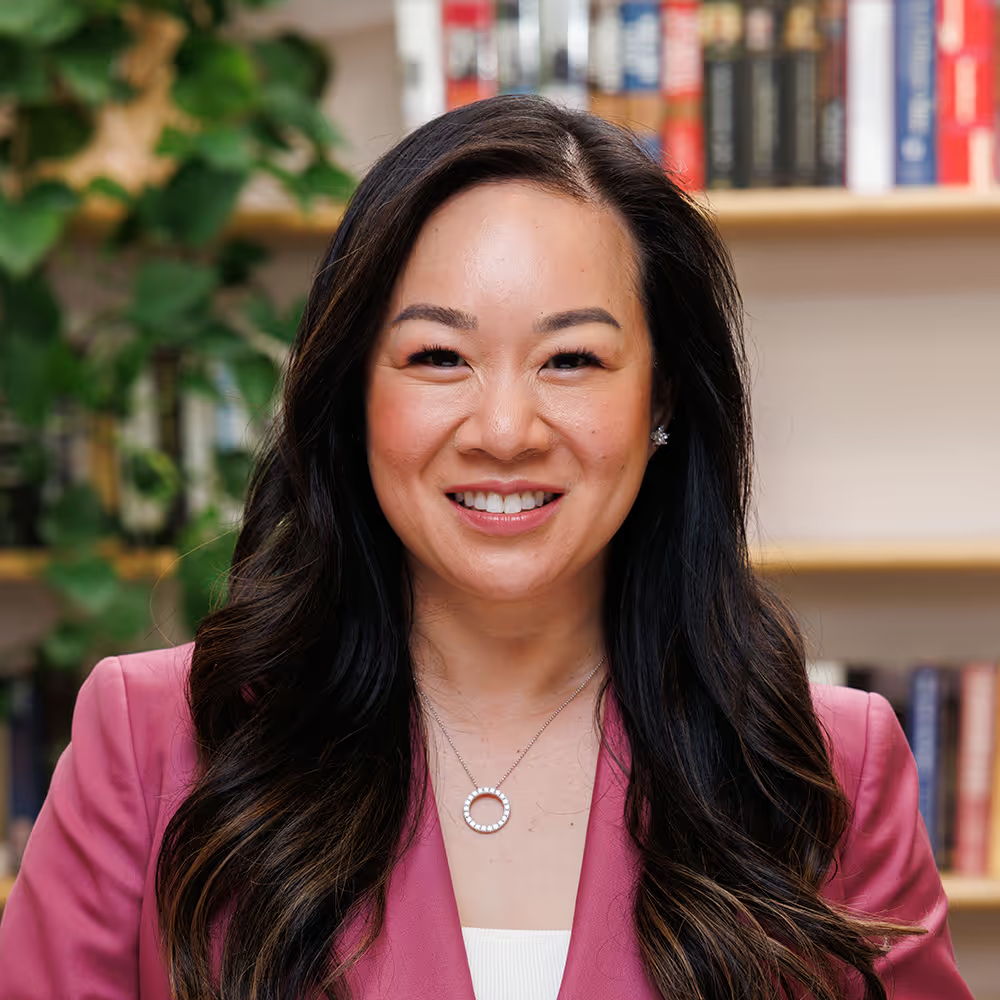An interview with Andrew Lund – Head of Media and Communications at Melbourne Airport
1
July
2025
1
min read
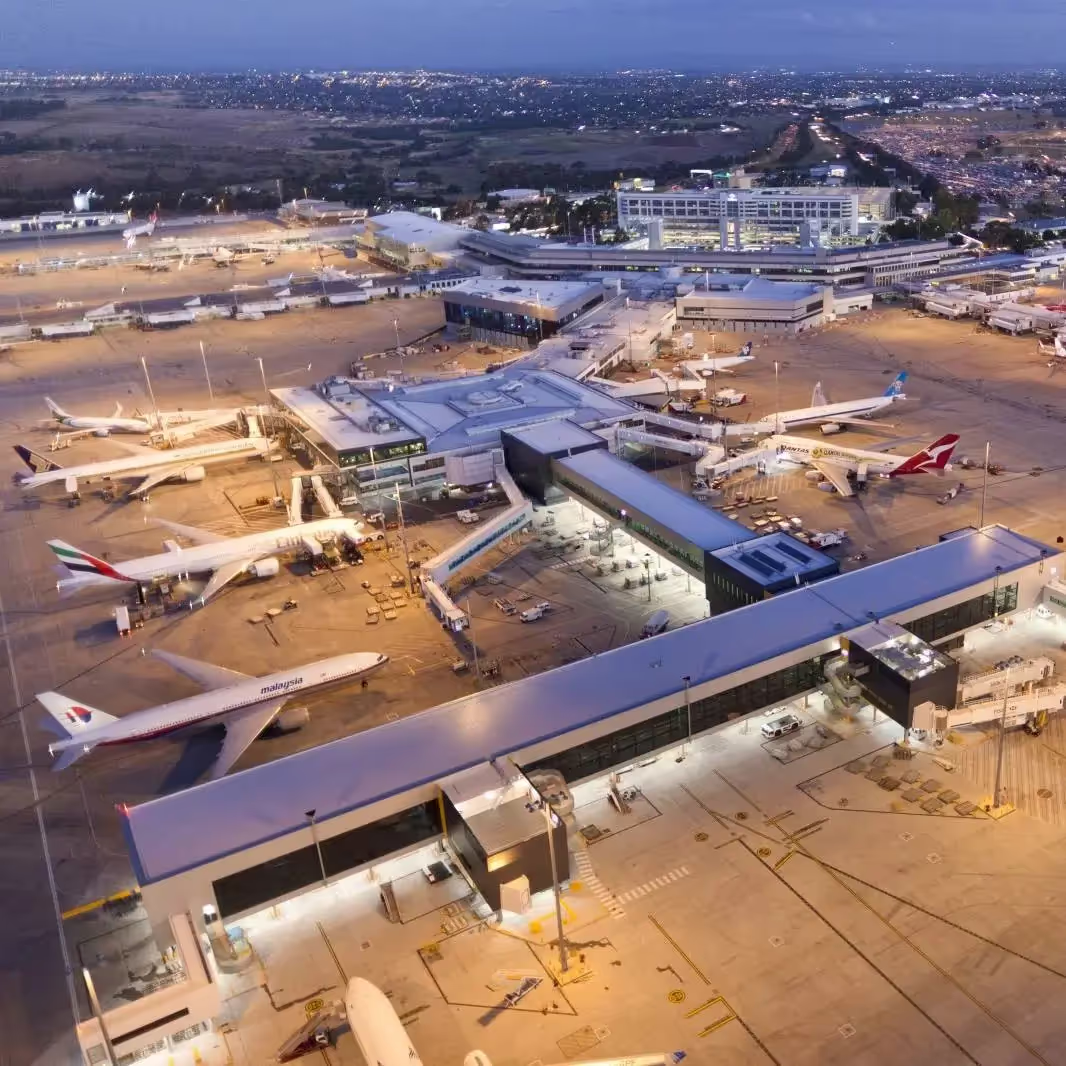
In this edition of the York Park Group Interview Series, York Park Group Partner Evelyn Ek spoke to Andrew Lund, Head of Media and Communications at Melbourne Airport.
Andrew Lund joined Melbourne Airport in 2021, after almost 20 years as a journalist with Seven News and Nine News.
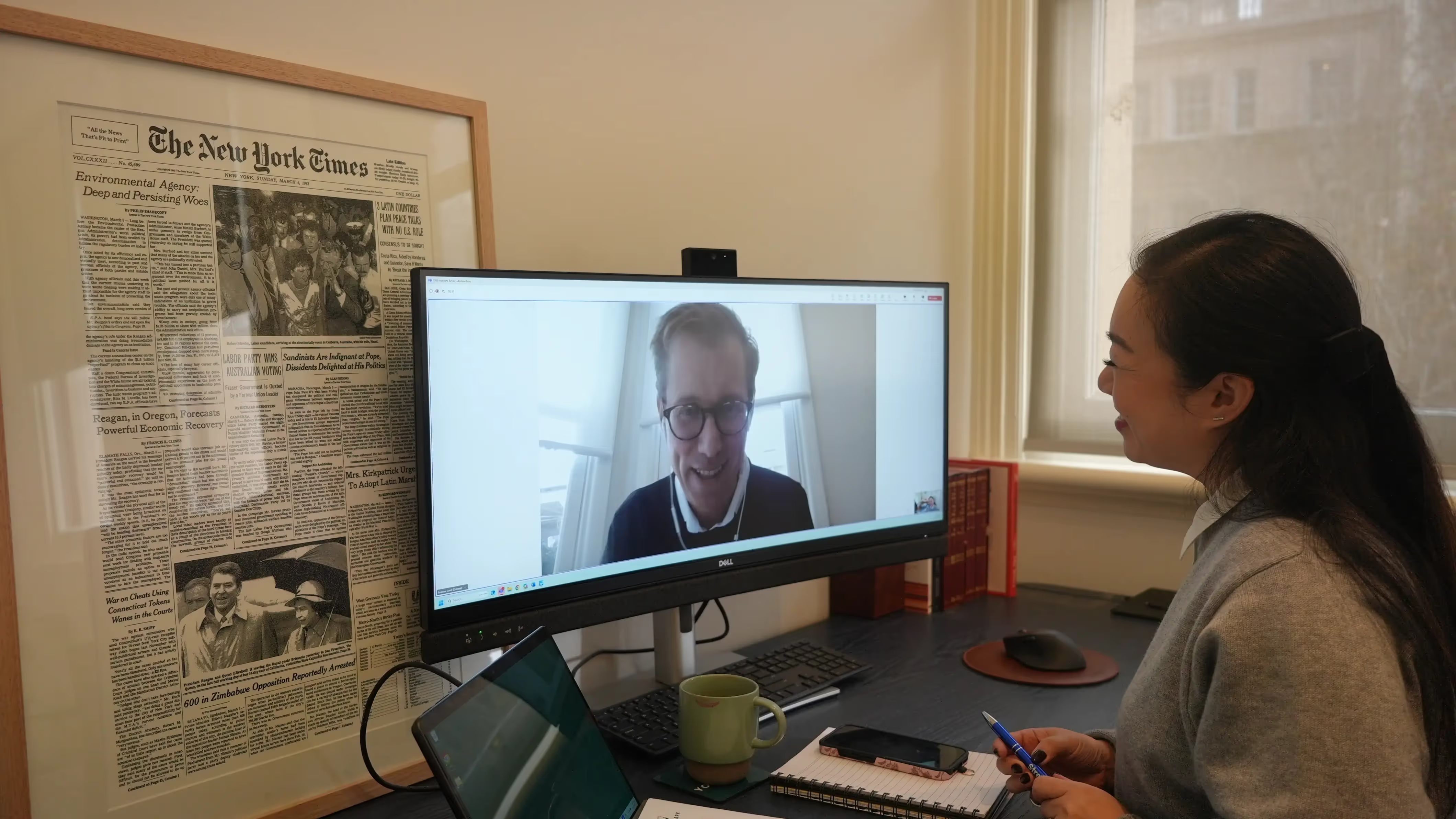
You made the move from journalism to Melbourne Airport in 2021. How did reporting on organisations and seeing how they managed issues influence how you now deliver communications from ‘the other side’?
As a journalist, I saw and reported on a whole range of organisations dealing with a whole range of issues – you really do see the good, the bad and the ugly.
There were a lot of things I was able to take from that, particularly in terms of how to manage and build relationships with the media. I remember being at Christchurch Airport in the early days of COVID-19, when New Zealand had shut its borders. I’d been standing in the cold doing live crosses for hours, and the Head of Communications bought me a coffee. It was just a lovely and simple gesture – but it’s little things like that which do make a big difference, particularly when you’re trying to build relationships. And, having those relationships sets you up really well for success.
Sometimes there are bad stories, and they need to be done. You’ve got to take that on the chin and know it’s not personal. But having that positive relationship means you’re more likely to get a phone call before the bad story runs, so at least you’re part of the story.
I operate on a no surprises model, and those relationships reduce the likelihood of a nasty surprise when you open up the paper.
What did you learn during COVID-19 about how to communicate to stakeholders during challenging and uncertain times?
It was a really strange time, where we were communicating about not very much. I started in August 2021, and I think by September, Melbourne Airport had its all-time record lowest passenger numbers. But the vaccination roll-out was underway, so there was some optimism.
One of the big challenges was advocating for parity with NSW in terms of the border reopening – that was really important, so we were out there advocating publicly and also privately to anyone we could.
People were interested in travel and when they might be able to see loved ones again or go on holiday so there was a lot of interest in what we had to say.
You said there wasn’t actually a lot to say, but communications and engagement need to be constant, doesn’t it …
That’s right – even when we had next to no passengers, we still put monthly passenger releases out and found new angles to them, for example, the fact it was our all-time record low since 1970. I was always trying to find angles in our monthly passenger numbers to keep that dialogue and communication going.
It is so important that communications is constant – you can’t just turn it off and on; you need to be out there.
Those monthly passenger numbers were a good springboard for what we wanted to talk about, which was reopening and making sure we were on the radar for the government and airlines.
Your stakeholder matrix at Melbourne Airport must be massive…
It is complex and it changes every day. Obviously, there’s the big players of government, industry bodies and community organisations... and, also, we’ve got 100,000 passengers who come through the airport every day, and every one of them is a stakeholder.
Particularly in the days of social media – if someone has a bad experience, they can whip out their phone and its everywhere within a couple of seconds.
So, yes, it is a really complex stakeholder matrix but it’s an exciting and dynamic one.
What were the principles you applied when you were engaging with the community about the third runway?
They were the same principles we apply for our communications in general – that we are authentic, accurate and accessible.
We wanted to make sure that people were getting all the information they needed in an accessible way. Particularly with community engagement, we tried to give people important information in a way they could understand. Being genuine in our engagement and acknowledging that, for a lot of people, a third runway was really exciting, but for some it was a pretty scary thing if they were under a flight path and didn’t know what to expect.
We were also very clear about how they could provide that feedback and how it would be taken on board, helping them through it and giving guidance about the best way to give that feedback – even if it wasn’t going to be necessarily good feedback for us. We wanted to make sure people had the tools and were empowered to have their voice heard.
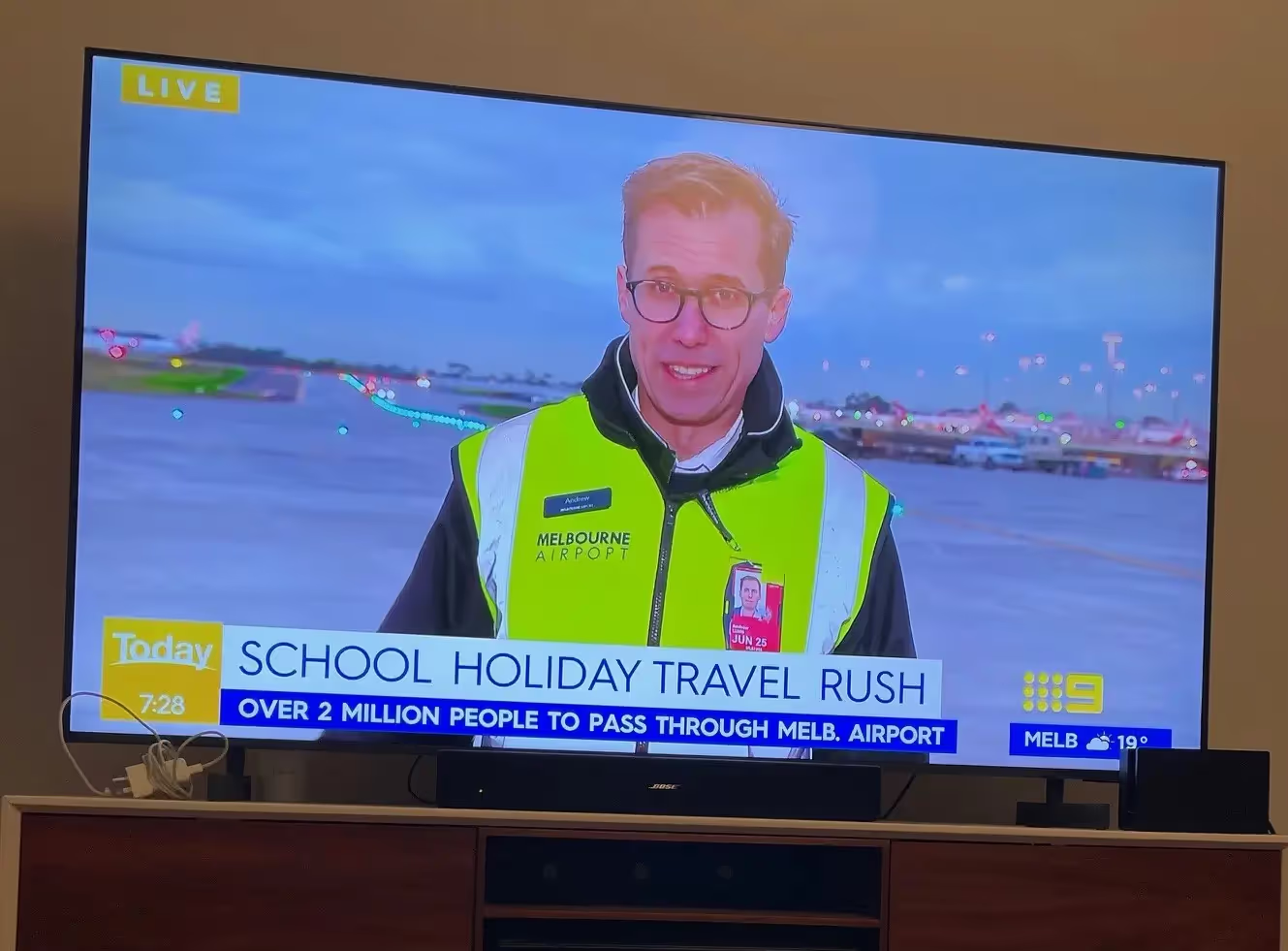
When it comes to crisis preparedness, you must always be on standby…
We have a whole range of different crises that we prepare for. A crisis for us is that people can’t get on a plane, but, like every other company, we’ve also got digital risks and the broad range of organisational risks to be prepared for.
We have a whole resilience planning team and their job is to prepare for these sort of critical events and we, the comms team, work really closely with them to plan what our response to these events looks like And you’ve got to be flexible because when these events happen, they are never going to be exactly what you prepared for.
One of the key lessons for us over the last couple of years is that when an aviation incident takes place, you’ve got to respond really quickly because its on social media within 30 seconds. We must respond really quickly initially, but also be authentic and accessible. It’s important to provide people with assurance that you’re across what’s happening.
The airport has really good processes in place and we work very closely with our crisis management teams so we are involved from the get-go.
Having a good reputation also means that, when a crisis occurs, you’re starting from a pretty good position; you have credibility and reputation resilience…
I think if you communicate authentically then you become a trusted voice.
Be prepared to put your hand up and admit things aren’t going well and be honest about that – as an airport we don’t really get a choice because people can see if you’re having a bad day, you can’t hide that. But, you must put your hand up and tell them why you’re having a bad day and what you’re doing to fix it.
If you communicate authentically, you build up that trust. And that trust then serves you well when you do have a crisis.
Someone said to me once that every organisation has a reputation ‘jar’: You’ve got to keep filling it up, because when there’s an issue, a little bit gets poured out, and then you’ve got to top it up again…’
Why do you think it’s so hard for organisations to get ‘authenticity’ right? Do we sometimes try to over-produce and control communications?
I think some organisations can be scared about having their voice out there and they overthink it, or they just don’t know the value of it.
Yes, it is a risk putting yourself out there – as with any relationship, but if you do it authentically and you’re proud of who you are, then you’ve got nothing to be worried about.
Recently, we’ve been putting our frontline people out there for media who obviously aren’t media trained at all. But, they know their stuff and they’re so passionate about it – I don’t ever worry about putting them in front of a camera because they’re great ambassadors for what we do.
Yes, you want preparedness, but you want authenticity. And, people like seeing a bit of scuff on the veneer because then they know what they’re getting is genuine.
Authentic communication is really important for building trust.
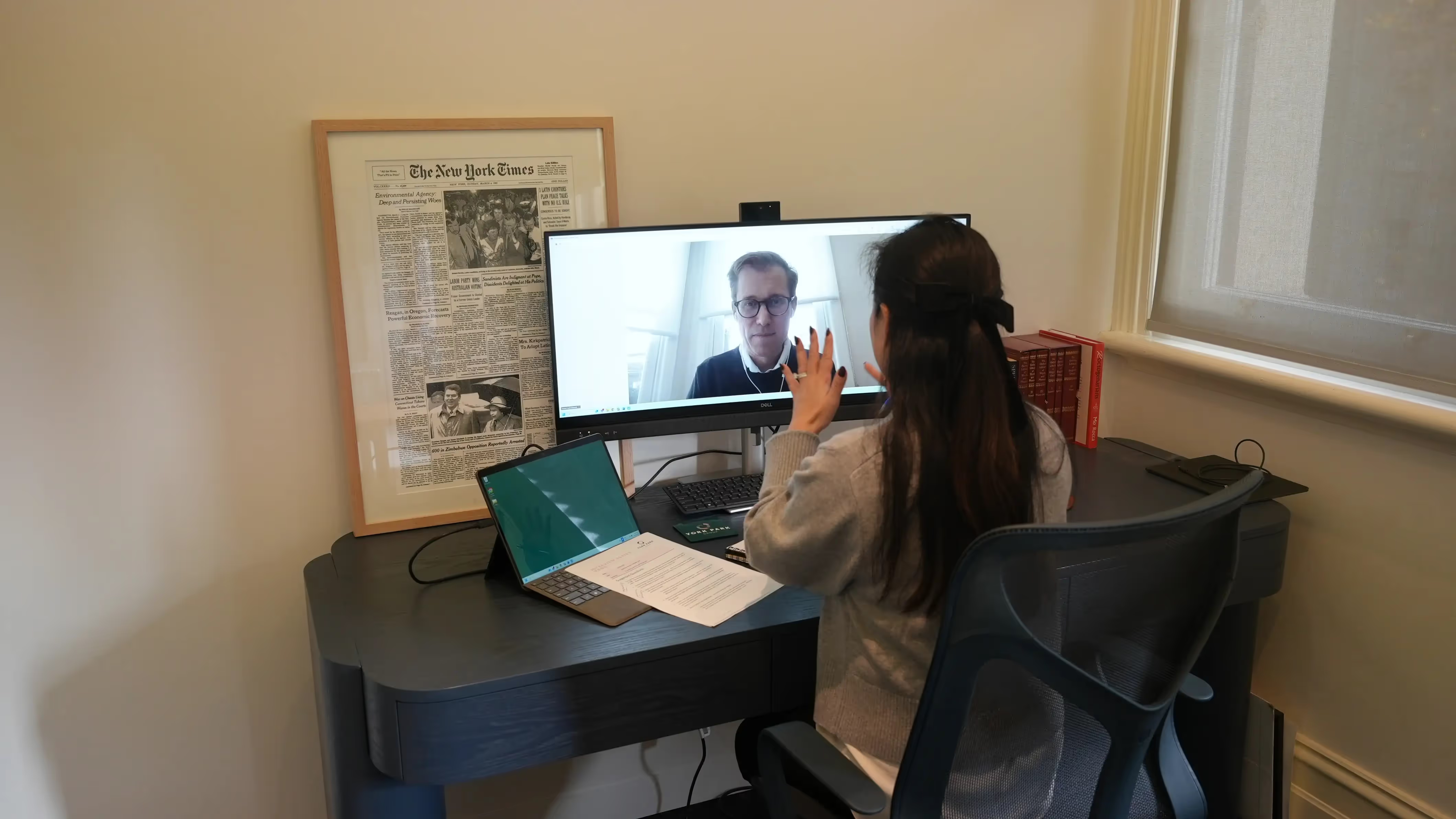
You’re on parental leave currently. How do you switch off your journalist and corporate affairs brain? And how important is it to step outside of the corporate bubble and remember what really resonates at the local cafe?
It is important and we’re lucky at the airport in that we have 100,000 people going through the airport every day. And, actually, the best way for us to find out what’s resonating is to chuck on a Hi-Vis vest and go spend time in the terminals. Helping direct people around, and you find out pretty quickly what the pain points are, what the issues are and what the sentiment is. We’re lucky to have such an immediate touch point.
But, also, particularly on busy days, it means you can be an extra set of hands in terms of mitigating issues. I might as well be walking the queues, reassuring customers they’re not going to miss their flight, rather than leave it for an hour and wait for the media to ring because we’ve got these queues.
I encourage my team to do this all the time, and we have a programme at Melbourne Airport called ‘Stepping Forward’, which is fantastic – it’s customer service training for everybody; whether you’re a plumber, a cleaner, or the CEO. Everyone does it with the aim being that everyone goes and helps passengers when needed, regardless of what else you’ve got going on. You’re expected to be late for a meeting if that means you’re helping Betty to Gate 59.
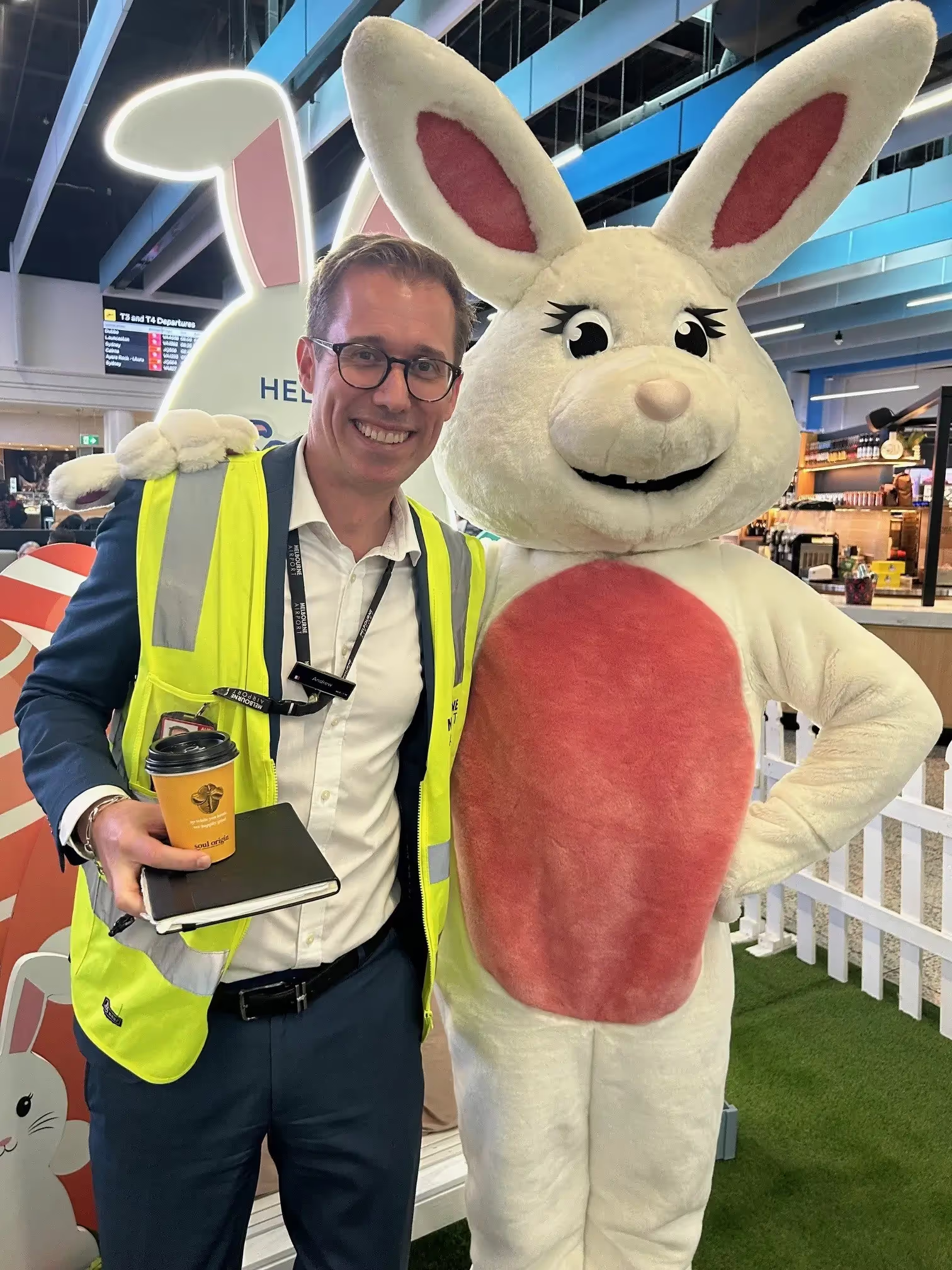
Everyone knows you love everything about transport … because you’re so passionate about it, is that how you’re able to be so across the detail?
It certainly helps to be interested in what you're talking about. Yes, I love all things transport and it did make the transition from journalism to the corporate world easier because I was really interested to learn more about what was going on and how the place functions.
I used to joke that in the newsroom, I would talk about planes and people would roll their eyes at me, whereas now I can talk about planes all day and people want to hear more.
What is the best advice you were ever given, and did you follow it?
Listen more is a very good one. And, also, sometimes you need to stop and totally start again.
I remember a boss telling me once to Select All in my script, hit delete and start again. It was brutal, but he was right.
Also, swear less on the phone!
What do you do in your spare time?
I love hiking, but I don’t get to do a lot of it. Having coffee in hand while reading the papers is a luxury that, if I could, I would do every Saturday… but, at the moment it’s more swimming lessons than café mornings!
10
February
2026
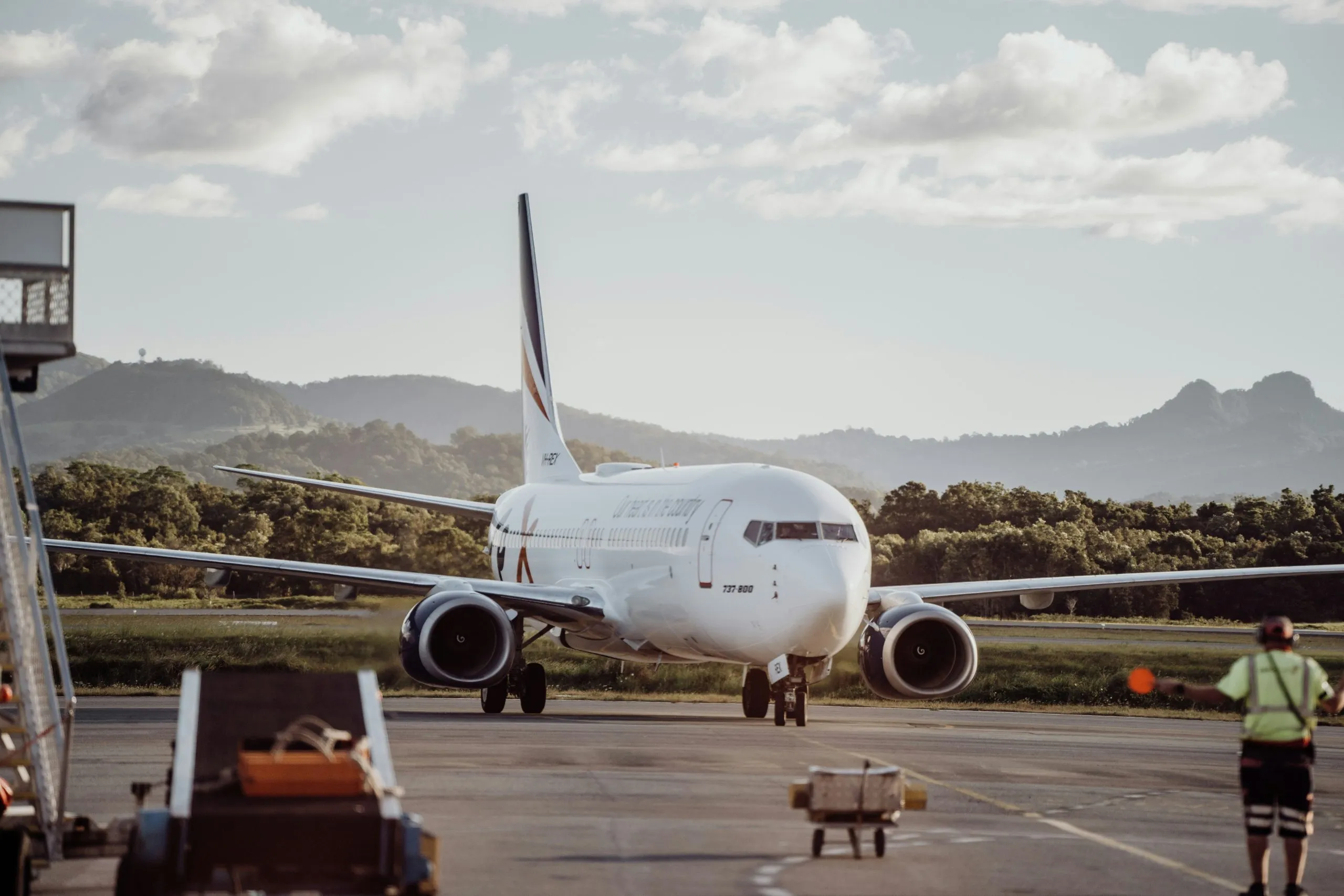
Regional aviation in Australia: The key drivers behind current government reviews
Read news article
10
February
2026

Regional aviation in Australia: The key drivers behind current government reviews
Download White Paper
4
February
2026
.webp)
York Park Group launches transaction communications service
Read news article
4
February
2026
.webp)
York Park Group launches transaction communications service
Download White Paper



